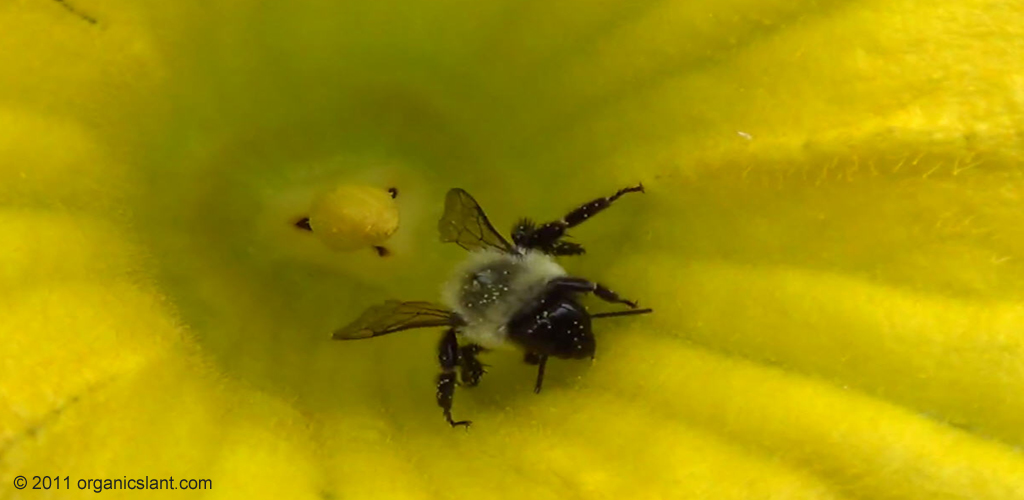Honeybees have been mysteriously disappearing across the planet, literally vanishing from their hives.
Known as Colony Collapse Disorder, this phenomenon has brought beekeepers to crisis in an industry responsible for producing apples, broccoli, watermelon, onions, cherries and a hundred other fruits and vegetables. Commercial honeybee operations pollinate crops that make up one out of every three bites of food on our tables.
Vanishing of the Bees follows commercial beekeepers David Hackenberg and Dave Mendes as they strive to keep their bees healthy and fulfill pollination contracts across the U.S. The film explores the struggles they face as the two friends plead their case on Capital Hill and travel across the Pacific Ocean in the quest to protect their honeybees.
Filming across the US, in Europe, Australia and Asia, this documentary examines the alarming disappearance of honeybees and the greater meaning it holds about the relationship between mankind and mother earth. As scientists puzzle over the cause, organic beekeepers indicate alternative reasons for this tragic loss. Conflicting options abound and after years of research, a definitive answer has not been found to this harrowing mystery.
ABOUT THE FILM
Imagine half a million adults skipping town and leaving their children behind. Picture an opened suitcase filled with bundles of cash at a bus stop and yet no robber wants to snatch it. The apiary science mystery known as “Colony Collapse Disorder” displays these very symptoms. Not only do the bees abandon their hive, but the queen and the brood as well. Unnatural. Unheard of. Even the predators that usually raid the hive for honey stay far away. At first, this occurrence sounds like an urban legend or an exaggerated tale. Except it’s not. The situation is both dire and all too real. Bees are disappearing all over the planet and no one knows why.
From the dawn of human society, the nature and origin of the honeybee has awakened the curiosity and interest of man. For the past five million years, this furry insect has been a creature of special sanctity, representing many things such as the human soul, industry, cooperation and the sacred feminine. Our relationship with bees also denotes the most ancient form of agriculture. Pre-historic petroglyphs depict women on honey hunts and Ancient Egyptian farmers floated beehives on rafts down the Nile to pollinate their crops.
And yet today, we live in a state of disconnect. The average consumer has no idea where things originally come from, not even something as vital as our food. They think edibles come naturally shrink-wrapped on a shelf and that the bees are merely stinging insects that make honey, when in fact these prime pollinators are responsible for one third of the food we eat, including most of the fruits, vegetables, nuts and even alfalfa used to feed livestock. In America, this amounts to about $18 billion in annual sales.
Since this nearly year-long investigation first began, thousands of beekeepers around the globe have come out of the bee yard and admitted to the same problem, with some reporting losses of more than 90 percent of their colonies. And there are no dead bees to be found. It is estimated that CCD has resulted in the death of more than one quarter of the 2.4 million bee colonies in at least 35 states across America.
So why are the bees dying now? This question merits a lengthy and well thought out response which covers massive differences of opinion among scientists, farmers, beekeepers and government agencies. Our film looks at CCD from the viewpoint of the beekeeper as well as from the perspective of hard science, while keeping in mind the mythic spirit of the honeybee. And with this crisis comes an opportunity for growth and change. As the bees die, some people are exacting more sustainable approaches to living. Biodynamic and organic farming are on the rise and a host of alternative beekeeping methods are coming into fruition.
Come this winter the beekeepers will put away their hives and anxiously wait. Will their honeybees once again disappear without a trace? If so, what impact will this have on our lives? The Vanishing Bees unfolds as a dramatic tale of science and mystery, illuminating this extraordinary crisis and its greater meaning about the relationship between humankind and mother earth.
The website www.vanishingbees.com also provides information on hosting a screening of the film for a group, as well as classroom educational resources and suggestions for actions you can take.
.

 Honey as an antibiotic: Scientists identify a secret ingredient in honey that kills bacteria
Honey as an antibiotic: Scientists identify a secret ingredient in honey that kills bacteria Manuka honey could help clear deadly drug-resistant lung infection
Manuka honey could help clear deadly drug-resistant lung infection Honey offers new approach to fighting antibiotic resistance
Honey offers new approach to fighting antibiotic resistance New clinical findings prove Burt’s Bees regimens effective across skin types
New clinical findings prove Burt’s Bees regimens effective across skin types